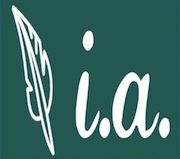A great deal of bickering occurs over the various words we try to associate with ourselves as well as the titles we attempt to grant ourselves. Admittedly, most writers have some kind of ego so the most grandiose title we can stretch to some how fit us the better. So, without further ado, here are the definitions as I and most of the world see them. If you don’t see them this way then you aren’t most of the world. I’m finally posting it here so I can just send people the link instead of getting dragged into yet another pointless discussion thread.
Note: Always check out any publisher or agent, especially one which contacts you, on Writer Beware. You can usually get pointed to one or more message boards to ask direct questions to writers which may have done business with them before. If you cannot find anyone ask them to put you in direct contact with other writers they represent who have actually went all the way through print.
Traditional Publisher
You are a corporation of significant size. You may have a zillion imprints, but you jumped through _all_ of the hoops to be both a corporation and a company allowed to legally sell the works of others. While many people may not know a given imprint name, most know the name of your parent corporation. You generally have large channels and typically use distributors typically to avoid all forms of storage especially when it comes to the massive volume of returns you must deal with. You buy ISBNs in bulk. You are responsible for Library of Congress registration and submissions as well as copyright registrations. You generally take two years or more between signing an author and actually printing their work.
Traditional Author
You sold your soul to the (wo)man. Yes you write and get published, but you still have to do 120% of the marketing, give up around 80% of your money, have no say what-so-ever when it comes to publishing format, cover design, sales channels, and in large part, the content itself. The editors and your publisher force you to work with drastically obsolete technology because they created templates and programs to digest only that format. You do not get to choose chapter titles, your publisher does that. You are at the complete and total mercy of the editors because your work does not “go to print” until they bless it. Maybe you got an advance, but unless you were already famous it was no where near enough to live on while you toiled away for six months to more than a year being humiliated with every draft and its “corrections” returned to you by the editor. You have to have either a spouse or a day job (usually both) to survive the two plus years it will take for your work to see a physical page in a book. Somehow you are okay with this.
Indie Publisher
You jumped through _all_ of the hoops to be legally allowed to publish the works of others even if you publish your own as well. The store/chain buyers recognize you as a vendor. While you may allow your authors a bit more control you still provide them with a traditional publishing contract, control the format and content, etc. Most of your published works will be electronic format only or you sign a contract with a POD service. If you sign a contract with a POD service someone other than you will be responsible for making the document conform to the cryptic input format needed by the POD service. You “may” provide some editing service initially, but eventually you will require your authors to obtain professional editing on their own. You will claim to do “some” marketing for your authors and obtain “some” reviews. Much of the marketing will simply be generating back pages for each author to include in their upload to the POD service. These back pages will be pictures of other works published by you along with short descriptions. Mostly you are hoping for a lottery ticket author so you can give up your day job. The POD service is responsible for obtaining ISBN for each format as well as copyright and Library of Congress filings.
Scam Publisher / Subsidy Publisher
There are far too many of these and they keep changing their names. To some extent they used to be called “Vanity Publishers” but that title was really a slur created by large publishers to smear competition. The over all difference between Scam Publisher and Indie Publisher has to do with who pays and intent. An Indie Publisher “may” give you a token (less than $5000) advance, but will never ask you to pay them. Typically your advance from an Indie Publisher will be a box of printed books for you to pass out while doing the bulk of the marketing. A Scam Publisher will offer some form of “joint publishing venture.” The terms they use will change frequently, but it all boils down to you paying for a print run _and_ their marketing services. You “might” get a tiny bit of editing from them. I’ve never heard of anyone actually seeing pallets of printed books from the “print run.” They usually see a box or two of POD printed books. The price varies, but, is usually around $20,000 and they typically don’t print hard cover.
An Indie Publisher which is trying to make a living full time publishing other authors via POD will most likely go belly up within a year or two. Any moose with ears can post something for sale on Amazon which means the market is completely flooded with unknowns. Odds of finding a lottery ticket author are small. Odds of finding a lottery ticket author _and_ being able to market them into the lifestyle you would like to become accustomed to are infinitesimally small.
Intent is the real difference. The Scam Publishers intend for you to pay them. In all of my years I have only met one person with one title who was actually getting regular royalty checks from such a company. That was many years ago when Linked-In was still something useful and I do not remember their name. I do know that they never published any other title with that same company. She “thought” they might have done good marketing the work because it was out for a quite a few years and still generating revenue. She might have also written a book good enough to attract those kinds of sales. We will never know.
Not all Subsidy Publishers are Scam Publishers, but a big chunk are. Some Subsidy Publishers provide a legitimate service. The legitimate ones are very up front about what services they are providing. Many authors do not which to locate professional editing services, generate properly sized files for cover printing (not as easy as you think), locate artists for cover art, obtain quotes for print runs, etc. Most will be honest with respect to the _exact_ amount of marketing, if any, they will do for you. Many of them will ask/require that you include back pages content they provide with cover images and short descriptions of each work. Some with gather printing quotes for you and explain the differences between each. They will also discuss the pros and cons of using POD and the various POD service they have experience with. In short, a legitimate Subsidy Publisher is a writer services firm which usually has various fees for the different services. Most will let you select ala-carte. You are paying for a helping hand to get through your first and maybe a second book. That is a completely different intent than “Pay us, send us your document file, and wait for possible royalty checks.”
Indie Author
You signed a contract with an Indie Publisher. Not much different than a Traditionally Published Author other than your publisher doesn’t have the same muscle and status. You get a little more control and a slightly bigger cut if there is anything to cut. You probably included a bunch of back pages in your book listing other titles by the same publisher.
Self-Published Author
You wrote the work. Obtained multiple rounds of professional editing. Either obtained professional interior design, purchased a template, or read a _lot_ about it before laying out your work. Of course, if you used a POD service the interior design was most likely forced on you via their file format and template selection. You obtained cover art and somehow managed to create a legitimate and properly sized wrap around cover image file. You do all of your own marketing. If you actually have print runs you obtain all of the quotes yourself. You buy your own ISBNs for print runs but the POD company owns the ones they assigned to you no matter what they told you. If you actually owned the ISBN it came with a Bowkerlink account where you could directly maintain the boot meta data in Books in Print. For print runs you have to deal with shipping, distributing and possibly returns. You do all of your own marketing and have complete content control. There is no publisher taking a cut of your revenue.
Just a Writer
You wrote something. In most cases you viewed your “self editing” as “good enough” and hurled the thing up on Amazon or Smashwords and sat back waiting for the money to roll in then were stunned when it didn’t happen. Eventually you poked around for reviewers who would accept an electronic file to review and hoped for the best. When people ask you say you are a Self-published Author because it sounds trendy. When you wish to feel more important you call yourself an author and pull out one of those POD copies you had printed so people will think you are a traditionally published author.


